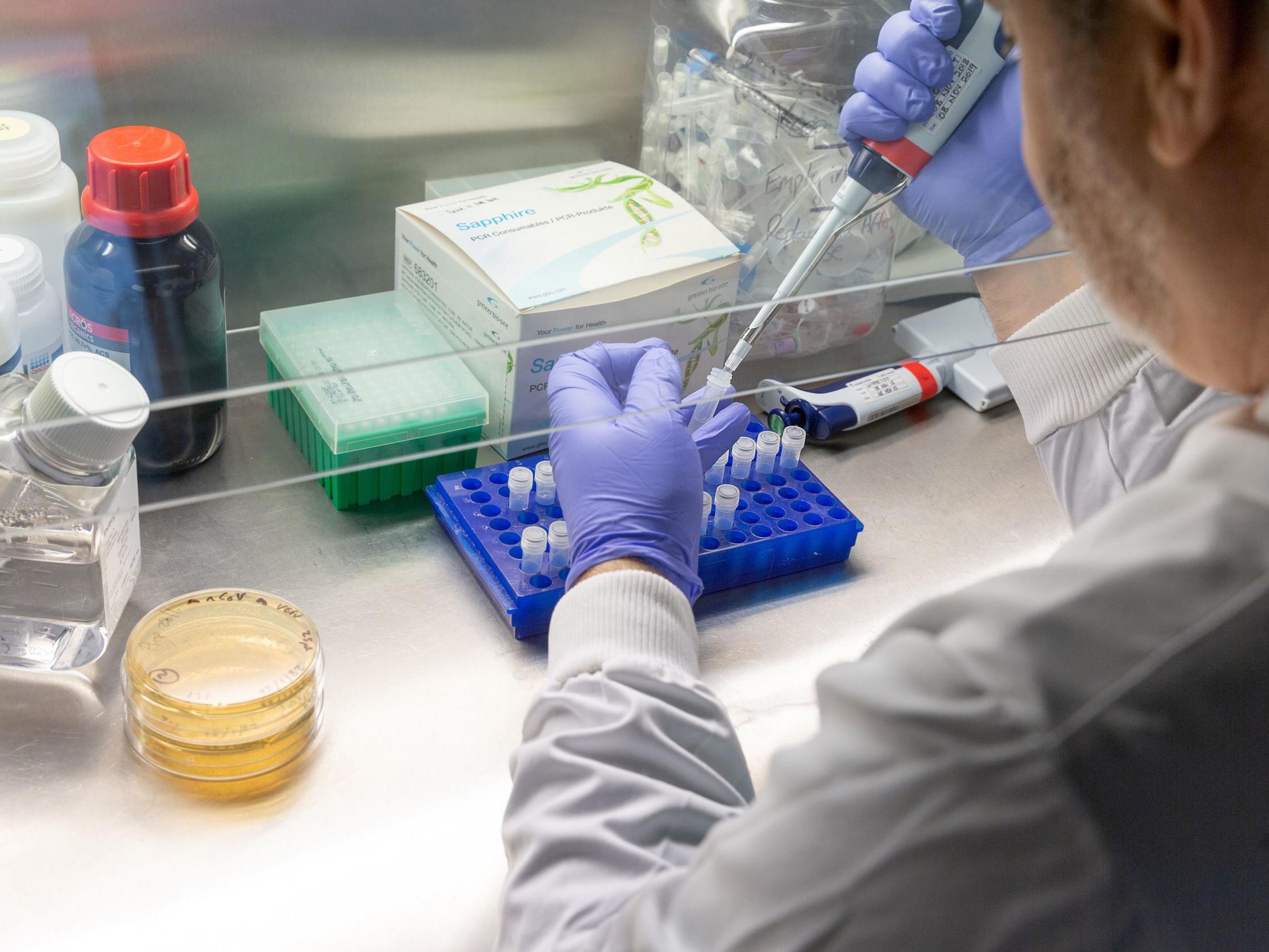Coronavirus: Second human trial of vaccine begins in UK
First volunteer receives dose of vaccine candidate developed at Imperial College London

Your support helps us to tell the story
From reproductive rights to climate change to Big Tech, The Independent is on the ground when the story is developing. Whether it's investigating the financials of Elon Musk's pro-Trump PAC or producing our latest documentary, 'The A Word', which shines a light on the American women fighting for reproductive rights, we know how important it is to parse out the facts from the messaging.
At such a critical moment in US history, we need reporters on the ground. Your donation allows us to keep sending journalists to speak to both sides of the story.
The Independent is trusted by Americans across the entire political spectrum. And unlike many other quality news outlets, we choose not to lock Americans out of our reporting and analysis with paywalls. We believe quality journalism should be available to everyone, paid for by those who can afford it.
Your support makes all the difference.Volunteers have begun receiving doses of a potential Covid-19 vaccine being developed by researchers at Imperial College London.
The first participant is reported to be in good health with no safety concerns after being injected on 19 June. A second booster dose will be administered within four weeks.
About 300 volunteers are taking part in the study, which is the second coronavirus vaccine trial on humans underway in the UK.
Researchers at the University of Oxford began testing their vaccine candidate on people in April, and have enrolled more than 1,000 participants.
Fifteen healthy volunteers are expected to receive their first dose in the coming days as part of the initial phase of the Imperial trial.
Professor Robin Shattock, from the university’s department of infectious disease, said: “We now eagerly await rapid recruitment to the trial so that we can assess both the safety of the vaccine and its ability to produce neutralising antibodies which would indicate an effective response against Covid-19.
“I look forward to our progress in the coming months.”
To assess safety as well as to find the optimal dosage, the researchers are starting with a low dose and gradually increasing it to higher doses for subsequent volunteers.
Imperial’s RNA vaccine uses synthetic strands of genetic code based on the genetic material of Sars-CoV-2, the coronavirus that causes Covid-19.
It works by delivering genetic instructions to muscle cells to make the “spike” protein on the surface of Sars-CoV-2. The presence of this protein provokes an immune response, offering protection against the virus.
If the vaccine is safe and shows promising immune response, a further trial involving 6,000 people is expected to go ahead in October.
Dr Katrina Pollock, the study’s chief investigator, said: “We have reached a significant milestone in this ground-breaking study with the first dose of a self-amplifying RNA vaccine delivered safely.
“We are now poised to test the vaccine in the dose evaluation phase before moving forward to evaluating it in larger numbers.”
Imperial has received more than £41m in funding from the UK government and £5m in donations to develop the vaccine.
The university has formed a social enterprise called VacEquity Global Health to develop and distribute its vaccine across the UK and worldwide if the trials are successful.
Matt Hancock, the health secretary, last week said over-50s, key workers, and people with heart and kidney disease will be given priority for inoculation if it becomes available.
Drug company AstraZeneca has already begun production of Oxford’s vaccine with the aim of building up stockpiles to be ready for deployment if it is approved for use in the autumn.
Join our commenting forum
Join thought-provoking conversations, follow other Independent readers and see their replies
Comments